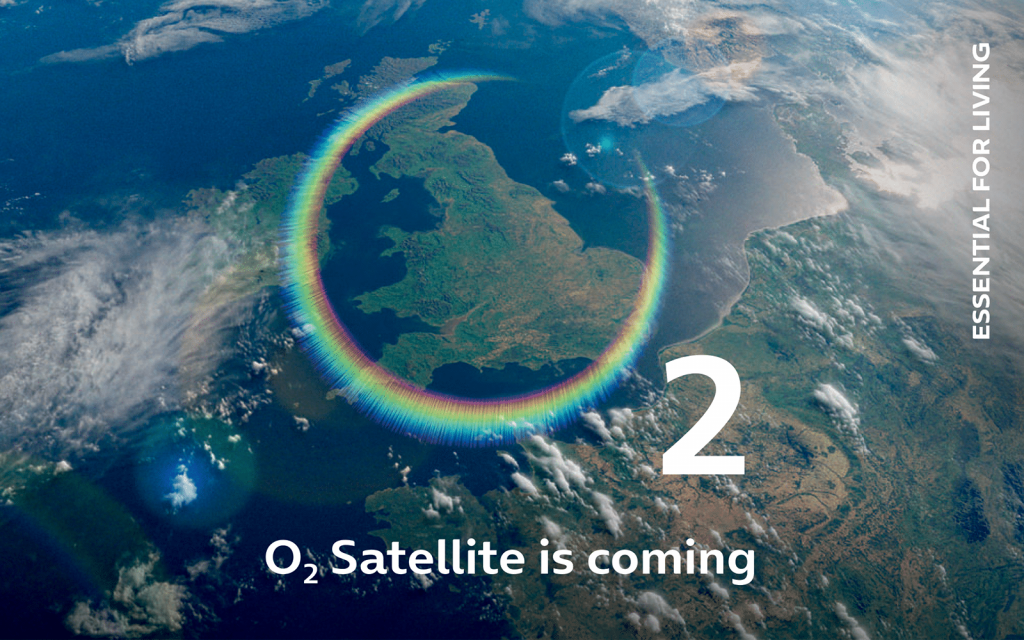VMO2 signs Starlink DTC deal; Q3 growth
October 30, 2025
By Colin Mann

UK multiplay operator Virgin Media O2 has announced a new multi-year landmark partnership with Starlink Direct to Cell, marking a UK-first initiative to enhance rural mobile network coverage and improve customer experience.
The operator is the first in the UK to utilise Starlink’s position as the world’s largest and only satellite-to-mobile constellation with 650+ satellites in Low Earth Orbit (LEO) to deliver connectivity straight to devices using a portion of O2’s licensed mobile spectrum. The new product, which will be called O2 Satellite, will initially deliver messaging and data services, with further improvements and applications to follow in the future across a range of handsets. App support will grow over time, with a focus on targeting support for the most asked-for applications at launch, primarily messaging, maps and location services.
O2 Satellite, powered by Starlink’s satellite connectivity, will allow customers to use their handsets in more rural areas, from Lands End to Inverness. This will provide peace of mind and reassurance that they can stay in contact with the wider world when travelling or carrying out activities like hiking, camping or sailing in coastal areas, building on Virgin Media O2’s Shared Rural Network rollout.
The O2 Satellite service will complement O2’s existing mobile network and work automatically in areas with no traditional mobile coverage, known as ‘not spots’, with the aim to expand Virgin Media O2’s landmass coverage in the UK to more than 95 per cent within 12 months of launch. This coverage is set to increase even further when next-generation Starlink satellites are deployed, alongside further enhancements in performance, application use and an expansion of use cases.
The operator is currently conducting internal trials of the satellite-enabled service, with customer rollout planned in early 2026. More details on the proposition and pricing will follow.
Lutz Schüler, CEO of Virgin Media O2, said: “This UK-first partnership is another example of Virgin Media O2 innovating to provide a better experience and peace of mind for our customers on top of the £700 million we are already investing in our mobile network this year. Starlink is a clear leader in this space, operating the world’s most advanced satellite constellation, which makes it the right partner to complement our existing coverage and support Virgin Media O2’s ambition to deliver reliable mobile connectivity across the UK.”
Telecoms Minister Liz Lloyd said: “This partnership demonstrates exactly how private sector innovation can deliver real benefits for people across the UK, supporting our mission to drive growth and ensure no community is left behind. Whether you’re running a farm in Cumbria or hiking in the Cairngorms, you’ll soon have the peace of mind that comes with reliable coverage.”
Mike Nicolls, Starlink VP of Engineering, said: “We’re excited to bring a satellite-to-mobile network to the UK with Virgin Media O2. This partnership underscores the importance of Starlink Direct to Cell’s mission to end mobile dead zones and deliver connectivity in remote areas where it wasn’t possible before. Whether it’s checking real-time weather updates, sharing a video with friends, or simply sending a text, people can stay connected when they need it most.”
In 2024, Virgin Media O2 announced that it was using Starlink’s satellite technology to provide mobile backhaul for some of the country’s most remote locations to accelerate its Shared Rural Network (SRN) rollout. This made use of Starlink’s satellites for broadband, a separate constellation from Direct to Cell.
According to analyst firm Assembly Research, the announcement represents a first-of-its-kind partnership for the UK market, mirroring those telecoms operator-Starlink arrangements that already have lift-off in several countries, including Japan and New Zealand. “It marks an important milestone in Ofcom’s push to enable direct-to-device (D2D) services in spectrum bands below 3GHz that are currently licensed to operators, while reflecting the regulator’s heightened focus on mobile coverage over the past year.”
“Ofcom was the first regulator in Europe to establish either a regime or guidance to support the technology’s deployment, following the lead of its peers in Australia, Canada and the US – arguably countries with the size or topography that could make the role of D2D particularly significant in delivering nationwide connectivity. It has also moved ahead of the EU, which lacks a common licensing framework for D2D, requiring operators to contend with a multitude of Member State-level approaches. For now, we consider satellite an important part of the connectivity puzzle and a pragmatic, complementary way to improve coverage (especially in the hardest to reach areas), rather than as a direct threat to traditional mobile operators, with expectations that big tech might further encroach upon the sector so far failing to materialise. As would be the case with many operators around the world, Virgin Media O2 will require a change to its licence terms, which have traditionally not authorised transmissions via satellite. It will also need to proactively monitor and prevent the risk of interference with other spectrum users – something that would likely be hardwired into any licence variation,” added Assembly Research.
Meanwhile, VMO2 posted steady Q3 results. Revenue was flat at £1,946.2 million, and adjusted EBITDA was up 2.7 per cent to £1,015.4 million. Fixed line customers were down 29,300 to 5.8 million and mobile customers were up 259,400 to 46.6 million.
“Despite an intensely competitive and tough market backdrop, we continue to be focused and execute against our core strategy with another quarter of profitability growth, stable consumer contract mobile additions and an improved trading picture on the fixed side compared to the last quarter,” commented Schüler.
Other posts by :
- Bank: AST SpaceMobile will orbit 356 satellites by 2030
- SpaceX launches 600th rocket
- Starlink: 10m customers and counting
- SES predicts end of ‘big’ Geo satellites
- Amazon Leo gets approval for 4,504 extra satellites
- SpaceX gets a portion of India
- TerreStar wants to build LEO network
- Musk: “No Starlink phone”
- Russia accused of eavesdropping on satellites
